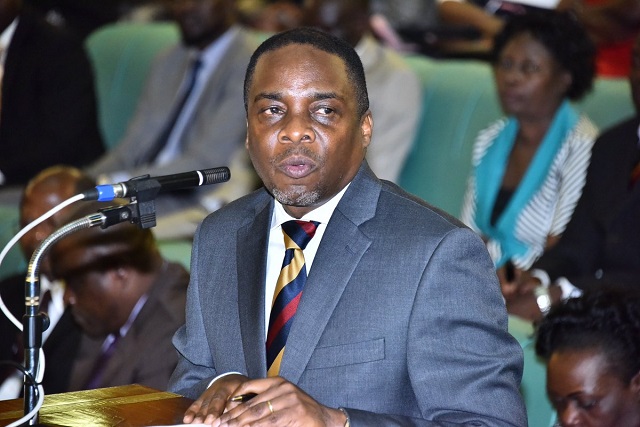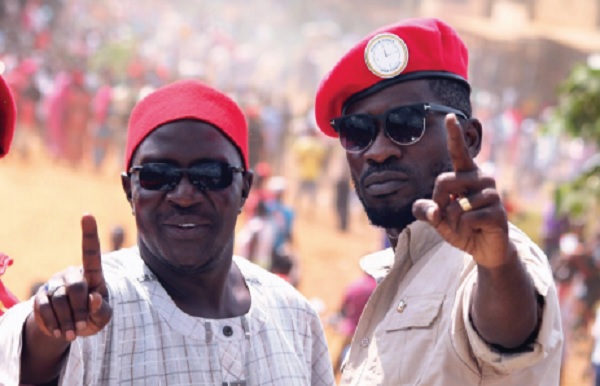
Kampala, Uganda | THE INDEPENDENT | For now eight times in 17 days, President Yoweri Museveni has addressed the nation, announcing a raft of measures to help the country forestall the spread of the COVID-19 pandemic.
These measures include those that significantly limit people’s basic rights like freedom of movement, association, faith among others. According to lawyers such as Asuman Basalirwa, the measures are symptomatic to a State of Emergency that is provided for under the 1995 Constitution, and can’t be supported by the Public Health Act.
However, in all the addresses, the president doesn’t’ mention in name that he has declared a State of Emergency, but in fact, according to Basalirwa, Uganda is effectively under a State of Emergency.
The constitution, under Article 110 grants the President, in consultation with the cabinet, the powers to proclaim a State of Emergency in part or the whole of Uganda, if the country is threatened by war or external aggression, when the security or the economic life of the country is threatened by internal insurgency or natural disaster or when there are factors that render the taking of measures which are required for securing the public safety, the defence of Uganda and the maintenance of public order and supplies and services essential to the life of the community.

The 2011 National Disaster Preparedness Policy, lists pandemics as a disaster that merits government intervention. Section 2.1.8 of the policy anticipates pandemics like COVID-19.
“An influenza pandemic may occur when a new influenza virus appears against which the human population has no immunity,” the policy states. It adds that with the increase in global transport, as well as urbanization and overcrowded conditions in some areas, epidemics due to a new influenza virus are likely to take hold around the world, and become a pandemic faster than before.
“Pandemics can be either mild or severe in the illness and death they, and the severity of a pandemic can change over the course of that pandemic…If an influenza pandemic were to occur today, we could expect the virus to spread rapidly due to the interconnected nature of the world and the high level of global travel,” the policy accurately says.
If this is what the policy says, why then is government not declaring a State of Emergency?
Hilary Onek, the Minister for Disaster Preparedness, Management and Refugees does not have answers to explain this either. “That one is beyond me, you will have to ask the president,” Onek said.
However, while addressing parliament, the Attorney General William Byaruhanga said although some rights have been taken away already, the current situation doesn’t merit the declaration of a State of Emergency.
Byaruhanga said the president, as the head of the executive, has had the discussion in the cabinet several times and all the measures he has taken in trying to contain the virus have been made incrementally in trying to see how much they can curb the virus without disrupting the lives of ordinary Ugandans.
Byaruhanga added that declaring a State of Emergency will result in the suspension of certain rights and the president has to wait until such a time when it’s absolutely necessary to take extreme measures.
“These measures could extend to commandeering private vehicles, turning warehouses, stadia, some people’s apartments into hospitals. All these you will agree with me are very extreme measures and it’s our view that we have not reached that point yet,” Byaruhanga said.
But Medard Lubega Sseggona, the Busiro East Member of Parliament also Shadow Minister for Justice and Constitutional Affairs says, the only reason Museveni is not declaring a State of Emergency is because he wants to be a lone player in the fight against COVID-19.
He however added that, were the president to declare a State of Emergency, it would be justifiable.
Sseggona’s views are not different from those of Isaac Ssemakadde, the Executive Director of Center for Legal Aid.
“The measures the president keeps on announcing are quite drastic and I think there are few living Ugandans who have a memory of this. Museveni has used violations to smash at our democracy and now he doesn’t have to. COVID-19 crisis makes a person of Museveni to exercise more power,” Ssemakadde said.
He added that even if the president is not known to be a fan of procedures, he should try to follow the law.
Despite the fact that the president is yet to declare a state of emergency, the National Disaster Preparedness policy lays down the procedures for government to respond depending on the nature of the emergency.
The policy says that in case of a health emergenc, the government will do everything to improve the sanitation and hygiene of the people, ensure vaccination of the affected population and treatment of the sick.
It also has a duty to ensure staffing of all health centers with qualified personnel, promote research in to modern emerging diseases, strengthen entomological services and disease surveillance and also create a public awareness of the disease, according to the policy.
It puts the Ministry of Health as the lead agency in dealing with the emergency. The other ministries that the policy talks about that must come together to respond to an health emergency like COVID-19, include the ministries of: agriculture, local government, water and environment, Uganda Virus Research Institute, Joint Clinical Research Centre, Office of the Prime Minister, UN agencies, private sector and NGOs.
The policy also talks about the creation of the Disaster Preparedness and Management Fund in which every year, the Ministry of Finance should allocate 1.5 per cent of the annual approved budget.
“The fund will be used for Disaster Preparedness and Management in the country. International and other National Development partners should be encouraged to contribute to the fund,” the policy says.
When asked whether they are allocated the said monies, Onek answered in the affirmative.
The policy also urges parliament to come up with a national disaster preparedness Act to operationalize it, however, according to Onek, the Bill is still before cabinet.
****
URN
 The Independent Uganda: You get the Truth we Pay the Price
The Independent Uganda: You get the Truth we Pay the Price






I commend all the stake holders in stepping up strategic measures to combat the covid-19 pandemic .My mp Hon. Asuman,Bugiri municipality, what are the benefits of state of emergency to the wanainchi if the government adhered to declare it? Hope we triumph in this crisis as a country and globally.praying behind my curtains in Nairobi,jogo road.